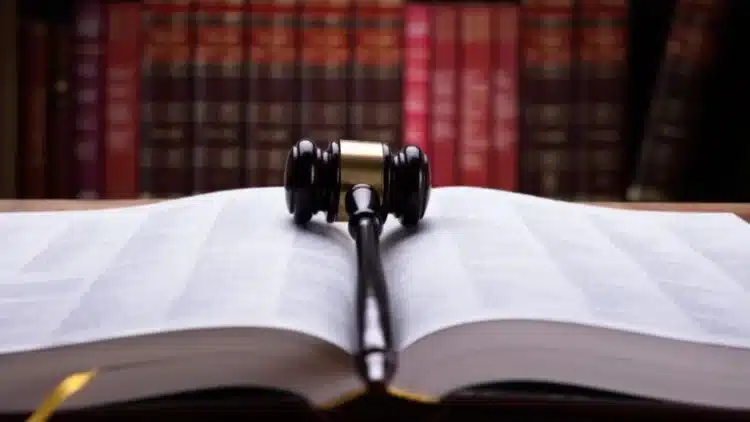Financial losses to your home and business might be reduced by purchasing appropriate insurance coverage. They protect you financially from disasters like floods, earthquakes, and wildfires, as well as man-made threats like burglary, theft, and vandalism. Insurance policies are contracts outlining the parties’ mutual understanding of the types and amounts of damage insured. Adjusters, either in-house or hired by insurers, are responsible for determining the validity of claims. However, as the policyholder, you have the option to hire a public adjuster, who is not employed by the insurance company and is, therefore, able to advocate for you without any restrictions. In addition, the counties of Lee, Collier, Monroe, Miami-Dade, Broward, and Palm Beach are just a few of the many that Florida Public Adjuster covers. Read on to know more about South Florida public adjuster contract requirements, salary, license, and statute.
It is important to clarify who a public adjuster is before considering the topic of a Florida public adjuster.
Who Is a Public Adjuster?
A public adjuster is an insurance specialist who can manage your claim on your behalf. While insurance company adjusters represent the interests of the insurer, public insurance adjusters represent your interests. Their job is to obtain every penny you’re owed.
Or simply put, a public adjuster is a qualified professional who policyholders can pay to advocate on their behalf throughout the claims process for property insurance. State governments instituted the role of the public insurance adjuster to give policyholders an impartial advocate and level the playing field with insurance companies. Also, a public adjuster is an advocate for the policyholder who helps manage the claim, verifies that all necessary paperwork is filed, and pursues the full amount of compensation due under the policy. A public adjuster is on your side instead than the insurance company, which is sent to investigate the claim. Many policyholders choose a public adjuster over an attorney to avoid court and keep more of their settlement.
What Does a Public Adjuster Do?
Policyholders who are already reeling from emotional distress may find the technical jargon of insurance plans and the calculations required to file a claim to be overwhelming. Public adjusters can assist in reading your policy, interpreting its provisions for you, streamlining the claims procedure, and keeping records of your losses and requirements.
Amy Bach, co-founder and executive director of United Policyholders in California, notes that many people view the claim process following a major loss, such as a wildfire or a hurricane, as a second calamity.
“A good public adjuster relieves the loss victim of the responsibility of determining the worth of their loss and negotiating with the insurance company for the full amount to which they are entitled.
Public adjusters can help with large, complicated claims following natural disasters like fires, earthquakes, and floods. In most cases, they will be unable to reach a settlement that exceeds the amount of your insurance policy.
In addition, to recover an amount in excess of the policy’s limits, you must be familiar with the policy’s terms and the steps you must take to collect any additional coverages.
How to Find a Good Public Adjuster
The profession of a public adjuster, as was previously noted, is one of extreme specialization. There are both competent and incompetent public adjusters, just as there are in any profession. For instance, public adjusters may practice without a license in some jurisdictions. Therefore, any crook can call themselves a public adjuster. However, most states mandate that public adjusters hold a license.
It can be difficult to locate and retain a competent public adjuster. The insured might not understand what makes a good public adjuster or what credentials to seek for. After a natural disaster, public adjusters flood the area offering their services to policyholders, making this an even bigger concern. In fact, they may knock on doors offering attractive incentives to homeowners. Here are tips to find a good public adjuster.
#1. Verify With Your State’s Insurance Department
Internet directories are available in many states, allowing you to check the license status of a public adjuster. Furthermore, you can accomplish this by calling the insurance department of the state in which you live. You could also choose to work with a public adjuster who is well-known and respected, such as AllCity Public Adjusting.
#2. Locate a NAPIA Associate
Investigating the companies that are members of the National Association of Public Insurance Adjusters is yet another effective strategy for locating a public adjuster to meet your needs. All of these companies’ public adjusters have agreed to follow the code of conduct. In addition to this, their licenses are up to date in all of the states that demand it.
#3. Go to the Organization’s Website
The majority of public adjusters who are credible have websites like this one. As a result, it is possible that a company should be avoided if it does not provide this or any other type of marketing content.
#4. Get in Touch With the Better Business Bureau
You could also find it helpful to contact the Better Business Bureau in your area to determine whether or not the company in question is accredited by the BBB and whether or not any complaints have been lodged against them.
When Should You Hire a Public Adjuster?
A public adjuster will get in touch with your insurance company and handle all of the discussions regarding your claim. Some people engage a public adjuster at their own expense to avoid the claims process’s burden. A public adjuster will also help examine your claim thoroughly to make sure no harm was missed. Your insurance payout for the necessary repairs may go up if they uncover more severe problems.
If any of these apply to your situation, it may be time to consult a public adjuster:
- You have a sizable claim or extensive damage.
- If dealing with insurance companies is a source of anxiety for you
- If you’ve experienced trouble with previous claims
- To protest an inadequate claim settlement
- You have been too busy to react to your insurance company’s inquiries.
What Do You Anticipate From Working With a Public Adjuster?
If you employ a public adjuster, they will take care of everything concerning filing and following up on your claim. They’ll send someone to your house to take a look at the damage, then analyze your claim in detail, figure out how much they think you should get paid, and work with your insurer to make it happen.
You might increase your payout by negotiating with the insurance company before you settle the claim. On the other hand, a public adjuster will act as your agent and handle all negotiations and communication.
It was previously suggested that hiring a public adjuster could increase the final settlement amount. Insurance companies paid out more money to policyholders who employed their own adjuster, according to research conducted by the Florida Association of Public Insurance Adjusters (FAPIA). The Florida Association survey found that homeowners who hired a public adjuster had an average settlement of $22,266 compared to $18,659 for those who did not.
However, hiring a public insurance adjuster is no assurance that you will receive a larger settlement. Although your insurance company will take into account the public adjuster’s findings, they are not obligated to follow the public adjuster’s recommended payout. Also, read Public Adjuster: Who They Are, Cost, and When To Hire One.
Florida Public Adjuster
Perhaps you’ve heard of public adjusters but are still confused about their role in the insurance claims process. And they won’t be knocking on your door in connection with your insurance claim until that time! It’s understandable that you’d like additional information regarding this procedure.
When a policyholder experiences an insured loss, they can turn to a public insurance adjuster in Florida for assistance. The more intricate an insurance claim is, the more helpful it could be. A public adjuster is a person who, for a fee, assists insured homeowners in “negotiating for or effecting the settlement of a claim or claims for loss or damage covered by an insurance contract.” This language is taken directly from Florida Statute Sec. 626.854.
In Florida, a public adjuster can only practice with a valid license issued by the Department of Financial Services and by abiding by a strict code of conduct. The public adjusters are not employed by or otherwise affiliated with your insurance provider. Their duty is to compile as much proof as possible in your favor and present it to your insurance company. In exchange, their services will cost you a percentage of your eventual claim payout. (They will typically be added as a secondary payee on the claim check.) In Florida, the percentage of your claim that can go to the public adjuster is capped at 20%.
In Florida Before signing a contract, both parties can discuss the fees and procedures of the public adjuster. They need to show identification and can only knock on doors between 8 and 8 from Monday through Saturday. They cannot advocate for homeowners to inflate their claims or make false or misleading claims to property owners.
Qualifications to Become a Florida Public Insurance Adjuster
Florida requires applicants for a 3-20 public adjuster license to first obtain a 6-20 adjuster license. This rule is in place to prevent inexperienced individuals from applying for public adjuster licenses.
To qualify for a public adjuster’s license, applicants must also demonstrate they have worked in the field. To become an apprentice public adjuster, independent adjuster, or corporate adjuster, the candidate must first be appointed by the appropriate authority. You must work as a public adjuster for a continuous period of six months before applying for a 3-20 license.
An attorney in good standing with the Florida Bar can practice law without a public adjuster’s license in Florida and nonetheless provide the services of a public adjuster. In addition, insurance claim settlements can now be successfully represented by attorneys thanks to this law.
Florida Public Adjuster License
There are more than 21 million people living in Florida, and among them are countless homes, businesses, cars, and other necessities. Floridians take precautions against disasters like hurricanes and car accidents by purchasing insurance plans to safeguard their most prized assets.
Public insurance adjusters are often retained by policyholders in the event of a claim being filed against an insurance policy. These insurance experts not only aid their clients in completing the claim forms and submitting them to the insurance companies, but they also conduct their own investigations of the claims and help their clients negotiate favorable settlements.
It’s possible to make a good living as a public insurance adjuster in Florida. However, in order to qualify for a license as a public adjuster in Florida, you must first obtain a surety bond in the amount of at least $10,000.
What Is a Florida Public Adjuster’s License?
Public adjusters who work in Florida and many other states are required to get a license from the government. All public adjusters must have a minimum degree of expertise and adhere to all applicable laws and professional standards, and this is ensured through the licensing process. Any Floridian who wishes to call themselves a public adjuster must first obtain a Florida 3-20 public adjuster license.
Furthermore, Florida requires a different license for a corporation adjuster and other types of adjusters. A 6-20 all-lines insurance adjuster license is the alternative primary Florida license for a public adjuster. “All-lines” refers to the adjuster’s ability to work in all major “lines” of insurance, including property/casualty and workers’ compensation. To operate as a public adjuster in Florida, you must first obtain a 6-20 adjuster license, which qualifies the holder to serve as either an independent or business adjuster.
How to Apply for a Florida Public Adjuster License
Any prospective public adjuster in Florida needs to be familiar with the steps involved.
#1. Recognize the Prerequisites for Obtaining a License as a Public Adjuster
There are several criteria that must be met before an individual may apply for an insurance adjuster license in Florida. A 6-20 all-lines adjuster’s license and six months of experience in the capacity of adjuster are prerequisites for this position. The following requirements should be met in addition to professional credentials:
- An applicant’s minimum age is 18 years old
- The applicant must either be a Florida resident or have a Florida-based principal place of business.
- The applicant needs to be a citizen or legal permanent resident of the United States with work authorization.
- A resident insurance adjuster license from another state is not acceptable.
#2. Buy a Florida Insurance Adjuster Surety Bond
A $50,000 Florida public adjuster surety bond is required prior to submitting an application for an adjuster’s license. Financial assurance that an adjuster will act lawfully and ethically is provided by these three-party legal contracts. Inquiring minds want to know.
Why is it that public adjusters in Florida need a surety bond? An insurance public adjuster’s duties extend to both policyholders and their insurers. The adjuster must be trustworthy and open with their clients. Surety bonds allow the government or another party to pursue financial reparation from an adjuster quickly and legally.
A public adjuster bond in Florida can be obtained quickly and easily. One, two, and three-year Florida insurance adjuster surety bonds are available from Surety Bonds Direct for a modest, one-time premium of $500.00. Florida public adjuster bonds are one of the few types of surety bonds that do not involve a credit check, and all bond principals are offered the same competitive premium.
#3. Submit Your Paperwork to the Florida Department of Financial Services
In order to become a public insurance adjuster in Florida, you must first obtain a bond and then apply for a license. You must create a MyProfile on the FDFS’s online Bureau of Licensing portal to follow your application.
Also, basic information such as your name, address, date of birth, and Social Security number, as well as evidence that you have obtained the appropriate Florida public adjuster bond, will be included in the application itself.
- License ID Fee: $5.00
- Application Fee: $50.00
#4. Do a Fingerprint Check and Submit Your Prints to the State Government
The process of obtaining a public insurance adjuster license in Florida includes submitting an impression of one’s fingerprints. You must use the fingerprinting service that has been approved by the state’s Division of Insurance Agent and Agency Services; the state does not accept fingerprints taken by any other fingerprinting service or by any other government agency. In addition, you may either mail in a hard copy of your fingerprints or upload them online.
- Fingerprinting Fee: $48.05
#5. Prepare for and Pass Florida’s Public Adjuster License Exam
If you want to work as a public adjuster in Florida, the next step is to pass the state exam. Before doing anything else, you should read the Florida Insurance Licensing Candidate Handbook. Important details about your test, including when it will be given, the regulations for taking it, study guides, and more, are included in this paper. PearsonVUE, the state’s official test provider, is where you may sign up for the exam. The test has 100 multiple-choice questions and 10 numerous practice questions, and you have two hours to finish it. A passing score on the exam will be good for one full year from the date of testing.
- State Exam Fee: $44.00
#6. Don’t Forget Continuous Education and License Renewal
Florida will email you when your public adjuster license is active after you complete all prerequisites. After verifying that your license is still valid, you can move forward with scheduling your consultation. An individual or company can be certified as a public adjuster. In Florida, if you haven’t worked as a public adjuster for 48 consecutive months, your license will be revoked. Keep in mind that every two years, the FDFS also mandates that adjusters get 24 hours of CE. By the end of your birth month, you must have fulfilled this condition. Attending programs for continuing education will help you stay abreast of developments in technology, insurance law, and other relevant fields.
- Appointment Fee: $60
Florida Public Adjuster Statute
Over the past few years, significant amendments have been made to the provisions of the Florida Statute that regulate the operations of public adjuster organizations. Listed below are some of those that stand out as very crucial:
#1. Customer and Insurer Contact
- Direct or indirect solicitation of an insurer or claims by a public adjuster is prohibited at all times except between the hours of 8 a.m. and 8 p.m., Monday through Saturday.
- In addition, DFS may take action against an insurance adjuster’s license, including suspension, revocation, or refusal to issue, if the adjuster makes public the personal financial or medical information of a consumer or initiates, without the request of a prospective customer, in-person or telephone solicitation after 9:00 p.m. or before 8:00 a.m. local time of the prospective customer.
- Within 60 days of the contract’s date, the public adjuster must give the claimant or policyholder a written estimate of the loss to aid in the submission of a proof of loss or other claims for payment of insurance proceeds. The written estimate must include an exhaustive list of the costs incurred in making the repairs, broken down by component (equipment, material, labor, and supply). If an insurance company or government agency requests it, you must also provide them with a copy of this estimate. For a minimum of 5 years, the public adjuster must keep the written estimate on file.
- Those working on behalf of an insurer, be they company adjusters, independent adjusters, attorneys, investigators, or others, are required to give at least 48 hours notice to the policyholder, claimant, public adjuster, or legal representative of the insured before entering the damaged property. The insurer or claimant may choose to forego notice.
- Without the policyholder’s affidavit of approval, a public adjuster may not purchase a stake in the salvaged property.
#2. Fees
- The maximum amount that can be charged for fees related to a reopened or additional claim that is not an emergency is 20%. As previously mentioned, the fee cap of 10% for an emergency-based claim remains in effect. Prior to the signing of the public adjuster contract, the public adjuster’s compensation cannot be contingent on any payments made by the insurer to the insured. Limitations on policy premiums are in effect solely for “residential property insurance” and “condo unit owner policies,” as those terms are used in section 718.111(11) of the Florida Statutes.
- Before a claim is settled, a written agreement must be signed before a public adjuster can collect a fee.
- Any payment to a public adjuster that would put them beyond the legal limit on their fees is illegal.
- In the first year following the declaration of an emergency, public adjusters cannot collect more than 10% of the insurance claim payment for claims based on the emergency and 20% of the payment for claims not based on the emergency. Only homeowners insurance and condo unit owner policies (as defined in) are subject to the fee limits set out.
#3. Contracts
- Within 10 days of the contract’s execution, the insurer or claimant is free to cancel the agreement with the public adjuster.
- All agreements with public adjusters must be in writing and include a disclaimer against fraud.
- Any property or casualty insurance claim contract involving a public adjuster must include certain details, including the full name and business address of the public adjuster and public adjusting firm, as well as the license number.
- The following clause must appear in at least 18-point bold type in the public adjuster’s contract: “You, the insured, may cancel this contract for any reason without penalty or obligation to you within 10 days after the date of this contract by providing notice to…(name of public adjuster)…, submitted in writing and sent to the address specified in the contract via certified mail, return receipt requested, or another form of mailing that provides proof thereof.”
What Not to Say to a Home Claims Adjuster?
When disaster strikes and property is lost, many people mistakenly believe that their insurance provider will fight for them. The more realistic version is that insurers always look for methods to save expenses, including claims.
Because of this, when you file a claim, your insurance company will look into the situation on its own. And during that process, they will most likely be on the lookout for anything that might be used to disprove your claim or justify a pitiful settlement offer.
As a result, if you’ve suffered a loss, you should consult with an experienced insurance claims attorney rather than the insurance adjuster themselves. Here is what not to say to an insurance adjuster if you find yourself communicating with the company’s representative.
#1. Don’t Take the Blame
To begin, keep in mind that being completely forthright with an insurance adjuster is not just encouraged but mandated. Inaccuracies may result in a claim denial or even accusations of insurance fraud.
Nonetheless, after a natural disaster, you shouldn’t blame yourself for the damage. In a similar vein, if you aren’t sure whether or not a fallen tree was rotting or whether or not a collapsed ceiling needs to be replaced, don’t make assumptions about it.
Insurance adjusters have a trained ear for admitting culpability, responsibility, or contributing to the situation, and they will listen carefully to determine if any remarks you make will dissuade their employers from paying on your claims.
#2. Don’t Play Down the Losses
When victims minimize their losses, it gives insurance adjusters an opening to do the same with their compensation proposals. For example, you may tell the insurance company they don’t need to worry about a certain part of the damage, don’t disclose certain damaged property items you’d replace anyhow, or leave out a certain piece of the damage during a walk-through. If you meet the criteria for benefits under your policy, you should be liable to the maximum payout for which you are eligible.
#3. Don’t Provide Details About How You’re Feeling
In the immediate aftermath of a collapse, a person’s adrenaline levels are typically so high that they are unable to feel the full degree of their injuries. Don’t reply “I’m fine” without further thought when the insurance adjuster inquires about how you are doing. Reassure them politely that you will get back to them after consulting with your legal counsel.
An insurance adjuster’s primary concern when calling you after an accident is whether or not you were hurt. It may appear like they actually care about how you are doing, but in reality, they just want to hear you state that you’re “fine” or “okay” so that they may use that against you if you try to file a claim for an injury.
#4. Don’t Take the First Settlement Offer You Get
An insurance adjuster may try to pressure you into accepting a quick settlement by saying it’s their “final offer.” However, you should not accept any settlement offer before consulting with your attorney. An adjuster’s hope is that a victim won’t understand the full value of their claim because of their inexperience with personal injury legislation. However, the first offer is almost never the best one. Consult a lawyer first to get a better idea of your potential compensation.
Florida Public Adjuster Salary
As of the 27th of April, 2023, a Public Adjuster in Florida can expect to earn an average salary of $41,095. A quick calculation will tell you that your hourly wage will be around $19.76. That works out to $3,424 per month or $790 per week.
According to ZipRecruiter, a Public Adjuster’s salary in Florida range from $31,863 (25th percentile) to $57,354 (75th percentile), with the highest earners (90th percentile) getting $64,922 yearly.
Furthermore, the wide range of salaries for Public Adjusters (up to $25,491) shows that there are likely to be several prospects for promotion and greater compensation based on one’s level of expertise, geographic location, and length of service in the field.
Few organizations are hiring for the role of a public adjuster in Florida, as seen by the lack of postings for this position on ZipRecruiter recently.
In addition, when compared to the salaries of public adjusters in other states, Florida ranks 49th.
ZipRecruiter constantly checks our database of millions of active jobs published locally throughout America to provide the most accurate Florida annual salary range for Public Adjuster positions.
How Much Do Public Adjusters Charge in Florida?
A public adjuster’s fee is not set in stone and will always be based on the complexity of the case. Since the entire state of Florida, and particularly Southwest Florida, is under a State of Emergency due to Hurricane Ian, everything should go smoothly. As was previously indicated, the percentage of the insurance payout that can be considered a fee is set at 10% for residential cases. They won’t collect the fee unless and until they’ve successfully negotiated payment from your insurance provider and you’ve received a check from them.
Furthermore, as these payments are typically issued in installments, a 10% (residential) fee is added to the total of each check as it is distributed. You may receive more than one check since there are likely to be numerous tiers of coverage within your policy, and we will fight for each tier to ensure that you receive all of the compensation to which you are entitled under the terms of your contract. They will submit a request for payment once they settle the issue with their insurance provider.
Conclusion
You may not require the services of a public adjuster in Florida if you have the time, energy, and ability to assess and catalog your losses, determine the cost of restoring your property to its pre-loss condition, and study and comprehend your policy in detail to know your rights and obligations. However, a public adjuster can do the work for you and may be able to negotiate a higher settlement if you are tired, overwhelmed, or unsure of what you are owed.
Florida Public Adjuster FAQs
How do I choose a public adjuster in Florida?
Calling 1-877-693-5236 or visiting The Florida Division of License Search will verify an adjuster’s licensure status in Florida. If a public adjuster offers you references, you should definitely make use of them. Get a list of references from satisfied customers who had claims like yours.
How long does an insurance company have to settle a homeowners claim in Florida?
After a claim is filed in Florida, the insurance company has 90 days to reach a settlement. In Florida, the insurance company has a deadline to respond to the claim and decide whether to pay.
Similar Articles
- INSURANCE CLAIMS ADJUSTER: Jobs & Salary.
- HOW DOES CAR INSURANCE WORK IN 2023?
- BEST CAR INSURANCE COMPANIES REVIEWS
- CATASTROPHIC INSURANCE: Is Catastrophic Insurance Worth It
- PROGRESSIVE TRUCK INSURANCE: Best Commercial Insurance Providers 2023






